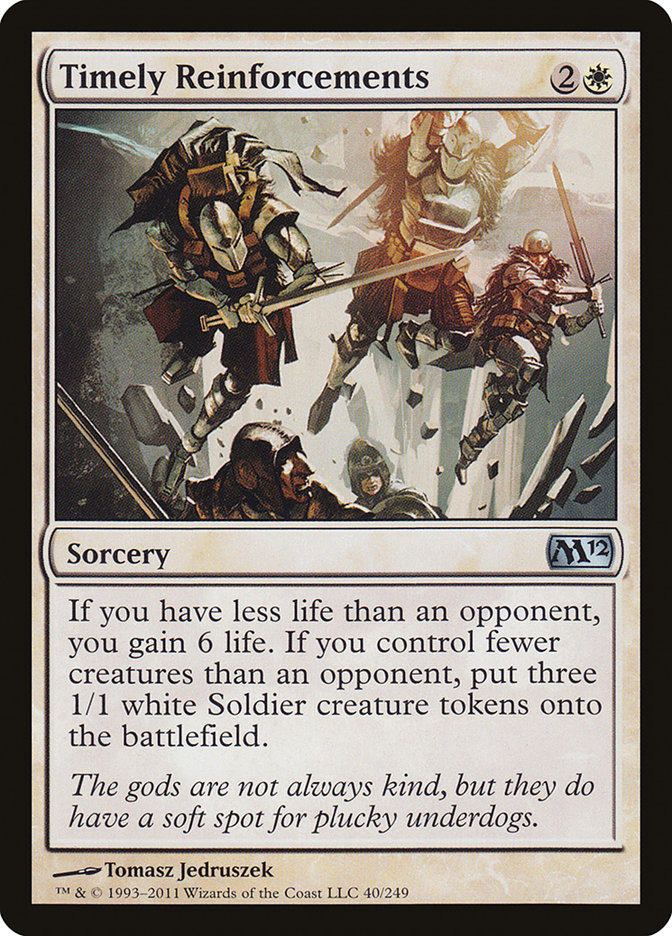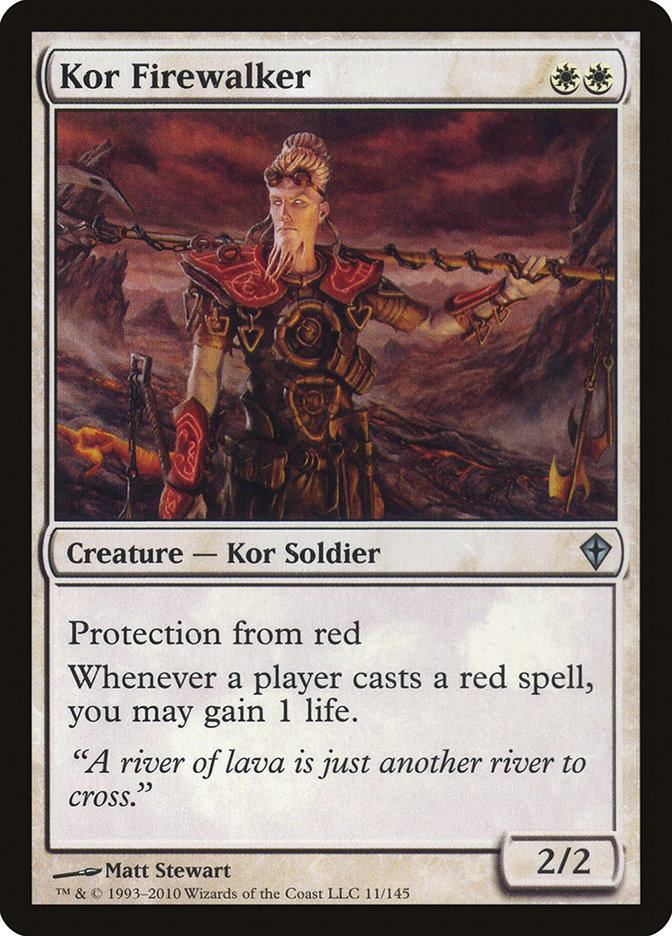Recently there has been a lot of talk about how Modern is not a good format. Complaints about how there are too many problems with certain cards and if you
don’t draw the right sideboard cards you “just lose.” I’ve been hearing a lot of this nonsense, so let me take a moment to tell you why this is not the
case.
For the professional players and non-professional players that say that Modern has too many linear strategies to be able to focus on beating all of them
and how they dislike playing Modern. My suggestion here is for them to change their attitude or just not play it. Now for all the players that want to keep
an open mind, let me take a moment to reassure you that Modern is awesome!
The other night I posted this comment on Twitter: “There are no bad formats. Only bad attitudes.”
Instantly, I received a lot of positive feedback and was super happy about it as this is something I really do believe. Sure, there’ve been a few
Constructed or Sealed formats people didn’t like. However, if you looked deep enough you could find something that many other people didn’t look for and
many times that strategy would work to your advantage.
I think many people view the results from Pro Tour Fate Reforged and see how popular Abzan was as a bad thing. However, if a deck is super popular and
everyone plays it, who cares? There is no rule that states you have to play it, and there’s no rule that states if you don’t play that deck you’ll just
lose to it. People complained about Treasure Cruise, Dig Through Time, Bloodbraid Elf, Deathrite Shaman, and now people complain about Siege Rhino and
Liliana of the Veil. I find this comical because your job as a Magic player is to play Magic, enjoy the game, and explore new options, cards, and deck
strategies.
What the Pro Tour results should mean to you as a player is that you have information to base what the metagame might be at your next event. This is a good
thing that benefits the players who put the time and effort to predict what the field might look like.
Instead of seeing players put the time in to understand Modern, I see them complaining about getting unlucky, losing bad matchups, and not drawing their
sideboard cards. This is something that happens in every format, which is a part of what makes Magic a great game.
Maybe complaining about not getting to use your Kor Firewalkers or Feed the Clans is something you shouldn’t be doing. Instead, you should look deeper and
see what other cards in Modern you can use in your sideboard that might be a better option.
For example:
Instead of playing Kor Firewalker, maybe consider Timely Reinforcements.
Instead of Feed the Clan, consider Obstinate Baloth.
Instead of Sowing Salt, try Blood Moon (even in your three-color deck).
About two weeks ago, I headed to my Regional Championship, which was a weekend festival. Saturday was Regionals (Standard) and Sunday was an Elite IQ
(Modern). I was excited to have a chance to play Sultai Control in Standard again and managed to take down the title. I was super happy that the deck
continued to perform well for me, but I was even more excited to play Modern the next day.
I had been working on an Esper Control deck before Pro Tour Fate Reforged. Although I was not qualified for the Pro Tour, I wanted to help out a few others
that were. Among the people I talked to, none of them played my Esper list. They all decided to go with something they had more experience with, which is
definitely a fine decision. I am a firm believer that knowing your deck is very important, especially in such a large format like Modern. Regardless, I
wanted to play Esper in a competitive event to see how it would play out, and it didn’t disappoint. I managed to put up a top 4 finish with the following
list.
Creatures (4)
Planeswalkers (2)
Lands (23)
Spells (31)

The deck performed extremely well and I felt that it had a reasonable match up against almost everything. If you notice one thing about this list the first
thing I want you to notice is that the deck is designed to be favored against a wide field. The sideboard mainly consists of cards that can be brought in
against a wide range of decks. This strategy isn’t heavily reliant on narrow cards. This list is very flexible and can play different roles as needed in
certain matchups.
As I mentioned earlier, Timely Reinforcements is a much better choice than Kor Firewalker because of the range Timely Reinforcements has. Let’s try to
break it down. Both cards are very good against Burn strategies, but beyond that, when would you really want Kor Firewalker?
First, let’s take look at Timely Reinforcements. Burn, Affinity, Zoo, and Abzan are all decks where Timely Reinforcements shines. Besides those four
matchups, you can also find reasons to bring them in other matchups. For example, in a more of a fringe matchup such as Merfolk, Timely Reinforcements is
good, whereas Kor Firewalker is not.
Let’s go a step further. You switched out your Kor Firewalkers for Timely Reinforcements, but you didn’t draw Timely Reinforcements and you lost. There’s a
chance the reason you lost is not because you got unlucky and didn’t draw your sideboard cards. It probably has something to do with how your deck is
constructed.
It’s possible that your curve was too high or maybe your card choices conflicted with each other. One of the reasons I played Oust over Path to Exile was
to help keep Mana Leak alive in the lategame, since giving your opponent a land isn’t something you want to do. Path to Exile also makes your Tectonic
Edges and Esper Charms worse because you are trying to limit their resources. Just because Path to Exile is much more commonly played than Oust doesn’t
mean that it’s always a better choice. Sure, there will be times when your opponent is going for a Pestermite/Splinter Twin combo, but your deck is
constructed in a way where you have black removal to help in this spot. This is an example of deckbuilding that people commonly overlook, but it is very
important.
Back to the sideboard choices. Cards like Stony Silence play a larger role in various matchups compared to Kataki, War’s Wage because Stony Silence helps
in other matches besides Affinity, like Tron. Another example I mentioned earlier is Obstinate Baloth versus Feed the Clan. Baloth can be very good against
a Jund or Abzan deck that relies on discard. It’s also on the same level, if not more powerful, than Feed the Clan against Burn. It’s also very important
to understand how certain decks win. Affinity, for example, relies heavily on Etched Champion. This means having maindeck answers to something like that
will increase your chances of taking down game 1 and the match. In my Esper list, the card that deals with the champion very well is Supreme Verdict.
However, it’s not like Supreme Verdict is only good against Etched Champion. It is great against Affinity’s overall strategy, and it has utility against
almost every deck in the field. Not only that, but it also plays well in the deck since you are not necessarily relying on your own creatures to close out
a game. This means it is unlikely you are ever losing card advantage when you play it. All of these factors are important to think of when choosing what
cards you want in your deck once you are able to narrow down the metagame.
Going forward, I want to put a lot of time into Modern in preparation for SCG Baltimore, which is only about a week away. To help try to back up my claim
that Modern is an awesome wide open format, I decided that I want to play a deck that is not really on the radar, and I’ll need your help to decide which
one I should play!
Below there is a poll with four different deck choices. I believe that each one of these decks are being heavily overlooked in the current Modern format as
so much attention is on Abzan, Affinity, Burn, Infect, and Splinter Twin.
All four of these decks can keep up with the best decks in Modern. Each one has a specific advantage and vast sideboard card choices as well. The voting
will end Monday February 23rd at noon, which should give me enough time to work on the archetype that is selected. Once the results from GP: Vancouver and
SCG Los Angeles’ Premier IQ are in, I can have a better understanding of what exact card choices I want in the list.
So feel free to vote and comment why you want to see the deck that you voted for. The “Sultai Cards Gerard Owns” reference is owed to the great Patrick
Sullivan, whose endearing comments on my Sultai card choices are quite witty and hilarious.
Speaking of Sultai, I have yet to make any changes from my Regionals list. For reference, here was my list from two weeks ago.
Creatures (4)
Planeswalkers (8)
- 3 Ashiok, Nightmare Weaver
- 2 Kiora, the Crashing Wave
- 2 Garruk, Apex Predator
- 1 Ugin, the Spirit Dragon
Lands (23)
Spells (25)

Since then, some things have changed. G/R Devotion took down SCG Houston, and although I haven’t played the matchup, it looks like it’s possible that a few
card choices might have to change to combat the matchup. It’s quite interesting on paper because it seems as though Sultai Control’s matchup against Robert
Berni’s list is much better than the matchup against Tannon Grace’s list. Even though both decks are G/R Devotion, they differ because of the haste
creatures, which are very good against Kiora, and Tannon’s list has a handful of them. I’m interested to see what GP Memphis and SCG Los Angeles will bring
to the table for Standard, which will most certainly set the pace for GP Miami.
With many big tournaments in both formats this weekend, things might get shaken up a bit or they might stay the same. Either way I’m excited to see what
your votes will say!


